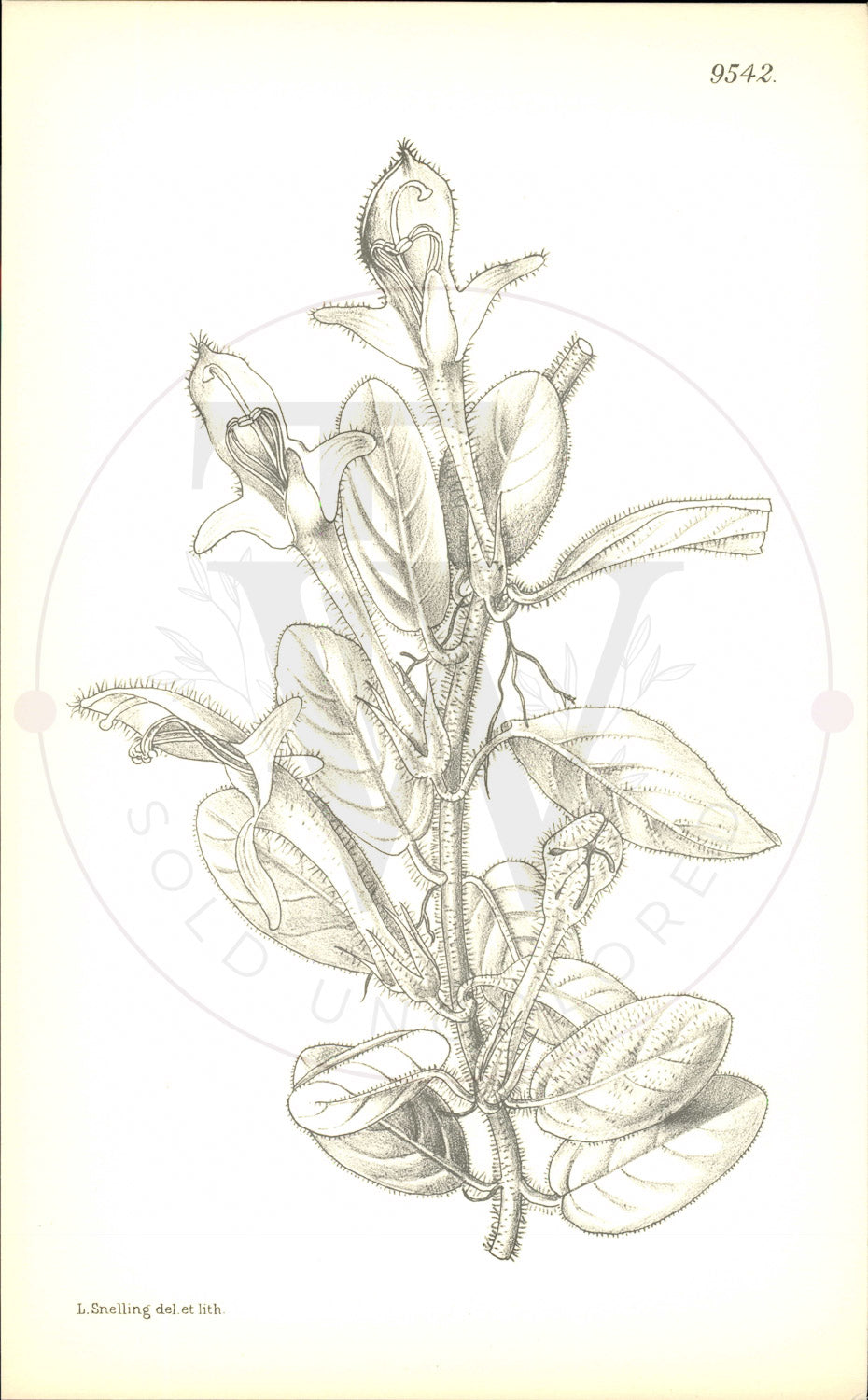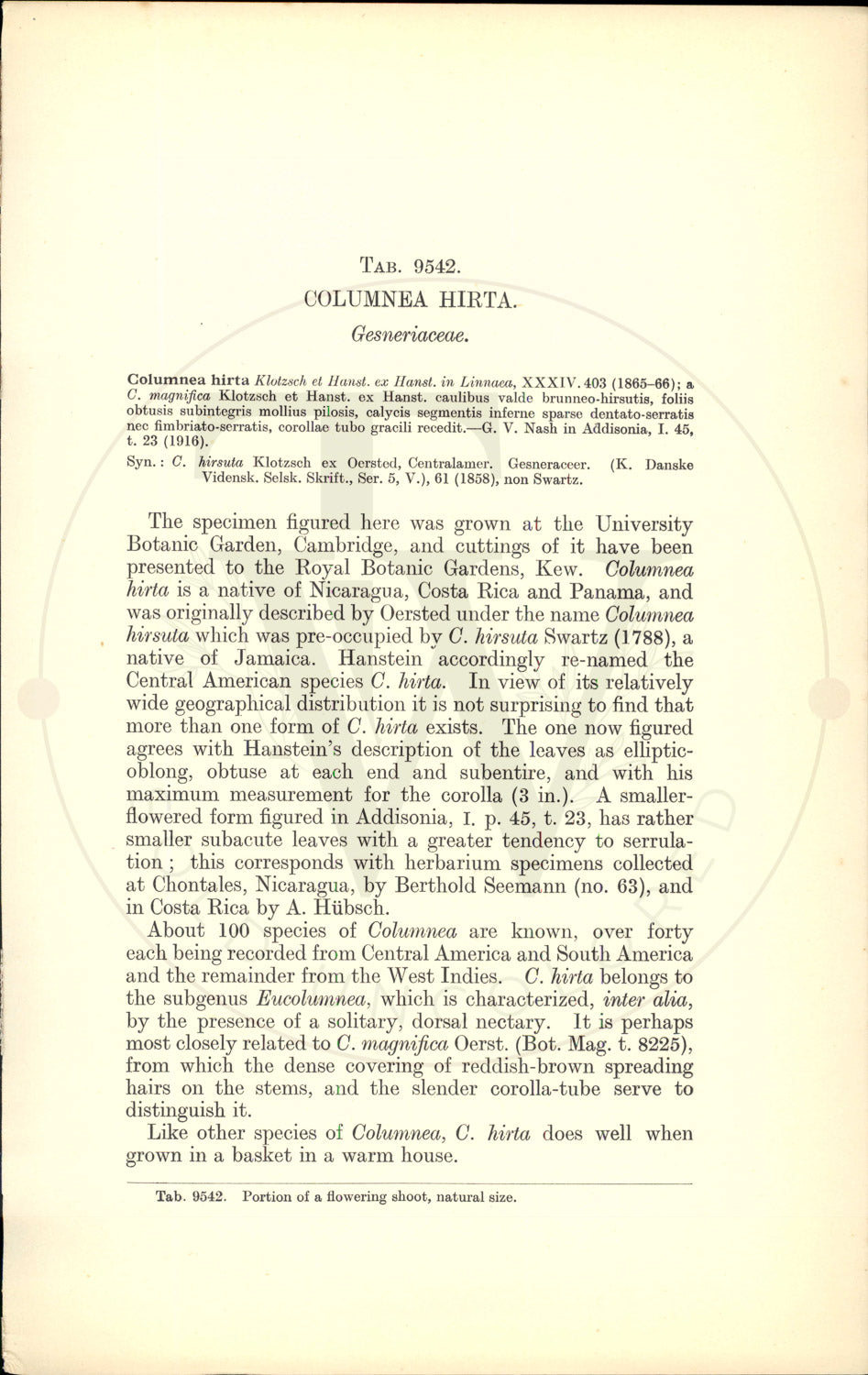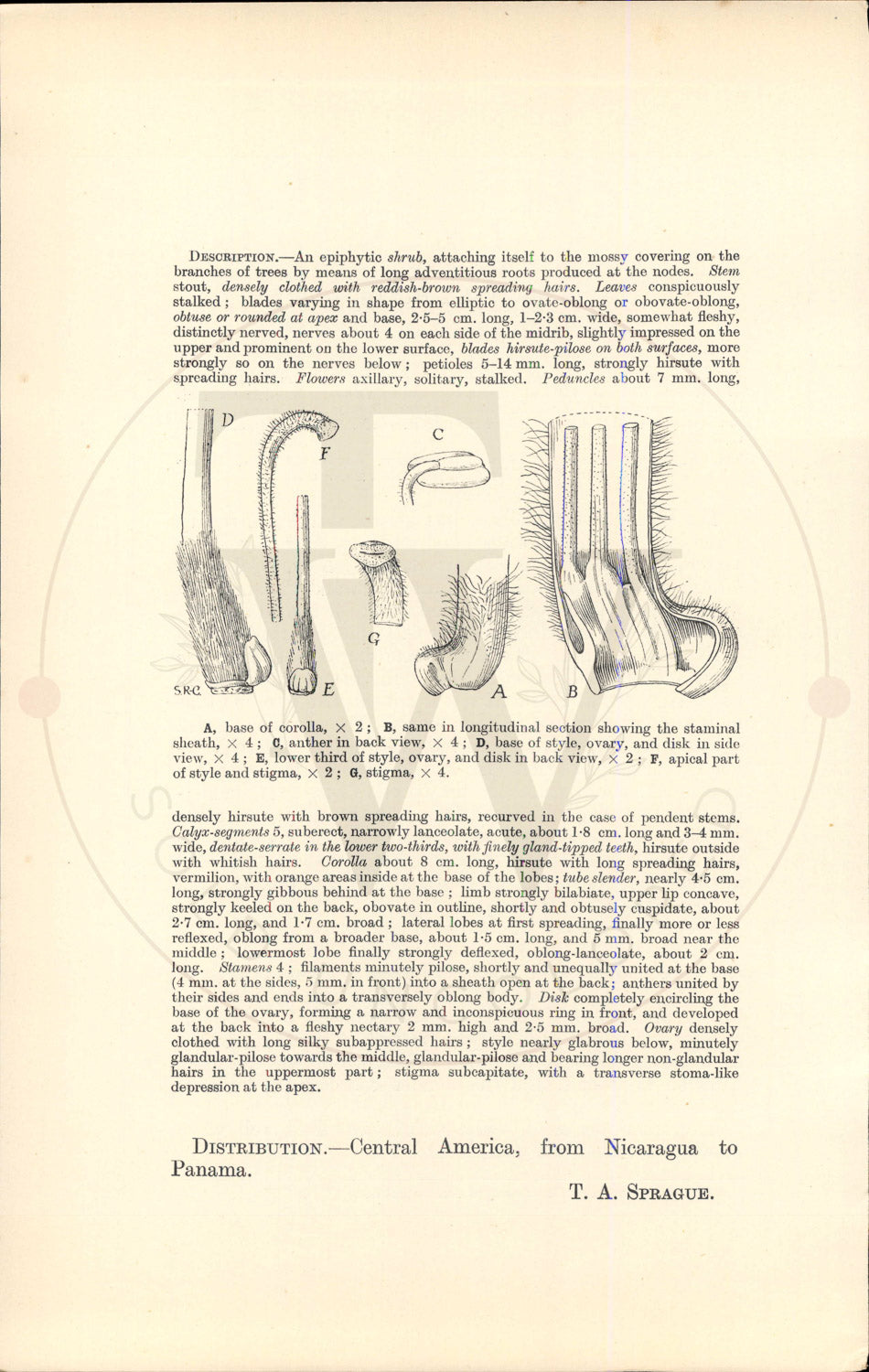Curtis Botanical Magazine
Plate 9542 - Columnea hirta
Plate 9542 - Columnea hirta
Couldn't load pickup availability
Curtis's Botanical Magazine - Plate 9542
Columnea hirta
Family: Gesneriaceae • Native Region: California • Publication Date: January 1st, 1934
Distribution: it is not surprising to find that • Tab Author: R. MELVILLE
Botanical Description
Was originally described by Oersted under the name Columnea hirsuta which was pre-occupied by C. hirsuta Swartz (1788), a native of Jamaica. Hanstein accordingly re-named the Central American species C. hirta. In view of its relatively wide geographical distribution it is not surprising to find that more than one form of C. hirta exists. The one now figured agrees with Hanstein's description of the leaves as elliptic- oblong, obtuse at each end and subentire, and with his maximum measurement for the corolla (3 in.). A smaller- flowered form figured in Addisonia, I. p. 45, t. 23, has rather smaller subacute leaves with a greater tendency to serrula- tion; this corresponds with herbarium specimens collected at Chontales, Nicaragua, by Berthold Seemann (no. 63), and in Costa Rica by A. H bsch. About 100 species of Columnea are known, over forty each being recorded from Central America and South America and the remainder from the West Indies. C. hirta belongs to the subgenus Eucolumnea, which is characterized, inter alia, by the presence of a solitary, dorsal nectary. It is perhaps most closely related to C. magnifica Oerst. (Bot. Mag. t. 8225), from which the dense covering of reddish-brown spreading hairs on the stems, and the slender corolla-tube serve to distinguish it. Like other species of Columnea, C. hirta does well when grown in a basket in a warm house.
Synonyms
Picea pendula Engelmann in Brewer & Watson
About This Print
Original black and white uncolored botanical print from Curtis's Botanical Magazine (established 1787). This 9000s series print is from unissued publisher stock, never hand-colored, representing the authentic plate as it appeared in the magazine. Edited by Sir Arthur William Hill for The Royal Horticultural Society, London.
Share







